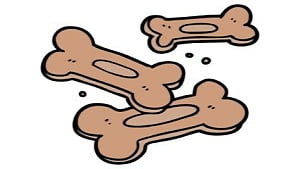This week’s dog training tip is use treats! Treats can be a powerful tool to have in your arsenal when it comes to dog training. This form of reward tells your dog that you are happy with what she’s doing and that she is doing the right thing. Dogs are not naturally programmed to respond to commands, so you have to be willing to put in the time and effort to train your dog and teach her that she wants to respond to commands because at the end of it she gets a reward!
For your dog to make the connection you have to help her associate the behaviour with the reward, which means you must reward your dog with a treat as soon as she has fulfilled that command or behaviour. As tempting as it may be, avoid bribery! For example, if you give your dog the sit command, she does not do it, then you show her a treat and then she sits, this is not good. Remember, you are the pack leader. She is to only be rewarded for successfully performing the desired behaviour. Always keep the treats hidden away in a pocket or a treat bag and present them ONLY when your dog has successfully performed the behaviour.
Treats can be used at any stage in your dog’s life. Just ensure that the treats are appropriate to their age, and for their health. I always suggest natural treats like freeze dried beef, liver or fish. I find that the natural treats are calorie reduced and help dogs to maintain a healthy weight. It’s also important to break treats up into small pieces so that you can reward your dog’s behaviour in stages. For example, if teaching your dog the ‘come’ command (the most important command), she may first come half way, then three quarters of the way, then all the way. Reward her with small treats for each stage, until she finally makes the connection, “if I come all the way, I get a treat!”
Now, what if your dog, like mine, is not treat or food motivated? Make praise, toys or play time the treat. The whole point is to reward good behaviour. Will these forms of praise work? They will. However, most dogs are likely to respond better and will learn faster with their natural instinct for food. The more quality time you spend training your dog, the sooner you will learn what will work best for her.
You do not have to give her treats for the rest of her life, especially if you have concerns about your dog gaining weight. You can reduce the treats or rewards gradually as your dog’s response to cues improves and becomes near perfect. Remember, your dog is relying on you to teach her about the world around her. Use treats or another form of reward to help your dog associate cues and to help her understand what you want her to do. This will make for a happy dog, a happy owner and one strong bond between you.
Stay tuned next week for tip #5 – The replacement theory
Please feel free to post any questions or comments below or leave us a message on our Contact Us page to book your complimentary meet-and-greet.
Wishing you a great day.

